If you think of fruits as a snack for quick energy and vitamins, you’re on the right track. But what if they could also help you build muscle and lose weight? While fruits aren’t typically the first protein sources that come to mind, some surprisingly pack a protein punch alongside fiber, antioxidants, and essential nutrients. That makes them ideal for anyone seeking effective weight loss, muscle gains, or simply a healthier diet. Let’s dive into nine power-packed fruits that deserve a spot in your nutrition plan.
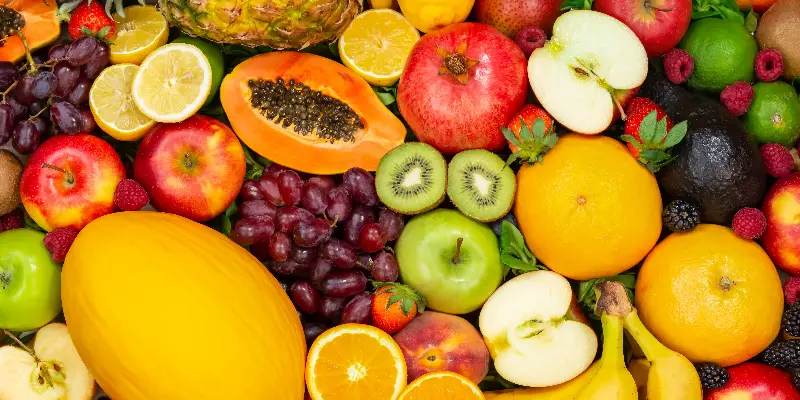
Unlocking The Power Of Protein In Fruits
Protein plays a crucial role in muscle growth and repair, appetite control, and boosting metabolism. While animal products, nuts, and legumes are the champions of protein, certain fruits deliver a decent amount for a plant-based snack. Even small increments through fruit add up, especially when combined with other protein-rich foods throughout your day. Plus, fruits offer hydration, natural energy, and antioxidants that reduce inflammation, which is vital for an active lifestyle.
The Super Nine: Fruits High In Protein
While you won’t get as much protein in fruit as you would from meat or lentils, these nine stand out for their higher-than-average content and diverse nutritional benefits. Add them to smoothies, breakfast bowls, or eat them fresh for a delicious and nutritious boost.
Guava: The Protein Powerhouse
Guava leads the fruit world when it comes to protein content. This tropical delight has around 2.6 grams of protein per cup, which is significantly higher than most fruits. It’s also packed with vitamin C—more than oranges—and is rich in dietary fiber that helps control hunger. Its sweet, tangy flavor makes it a fantastic addition to salads, yogurt, or smoothies. For those looking to control cravings and feel satisfied for longer, guava is a smart pick.
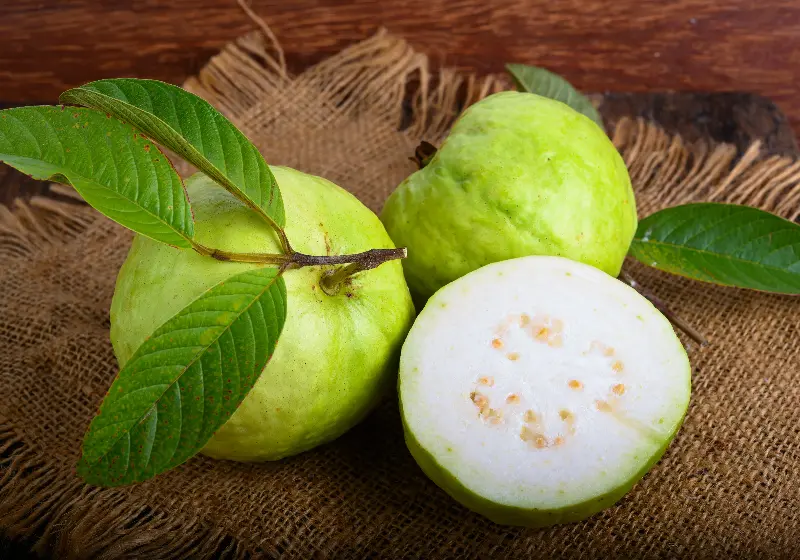
Avocado: More Than Healthy Fats
Known for its creamy texture and heart-healthy fats, avocado also sneaks in about 3 grams of protein per cup. It’s a unique fruit, offering more protein and less sugar than most of its peers. Avocado’s high potassium and magnesium content support muscle function and recovery, while its fiber makes it a champion for digestive health and appetite control. Sprinkle some salt and pepper, mash on toast, or blend into protein shakes for an extra creamy kick.
Apricots: Tiny But Mighty
Apricots might seem delicate, but they contain nearly 0.5 grams of protein per fruit (about 1.4 grams per cup when sliced). Dried apricots, even more concentrated, are a portable source of plant-based protein and fiber. They also deliver beta-carotene, which supports vision and immunity. Their versatility—eaten fresh, dried, or mixed into trail mixes—makes them a staple for fitness enthusiasts needing an on-the-go snack.
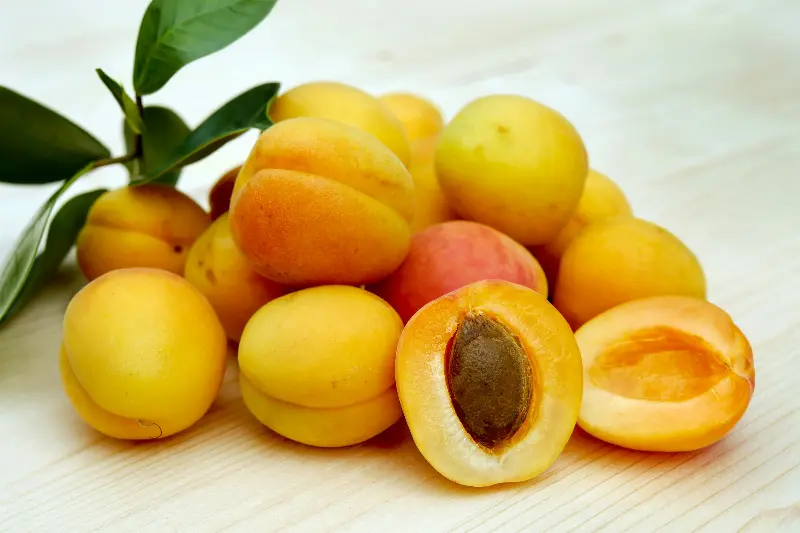
Blackberries: Antioxidant All-Stars
Blackberries aren’t just good for their bold flavor; they provide about 2 grams of protein per cup. These berries shine with their antioxidant content, fighting off exercise-induced oxidative stress and aiding muscle recovery. Toss them in your cottage cheese, blend into a protein smoothie, or enjoy as a topping for your morning oats. You’ll get protein with a side of vitamin K and manganese, which support bone strength—a plus for active men and women.
Kiwi: The Underrated Muscle Booster
Don’t let their size fool you—kiwis offer about 2.1 grams of protein per cup. Their refreshing tartness makes them a unique addition to fruit salads or smoothies. Along with protein, kiwi delivers a blast of vitamin C and E, plus potassium to help prevent muscle cramps during workouts. Scoop out the inside for a quick snack or slice it up and mix with other protein-rich foods.
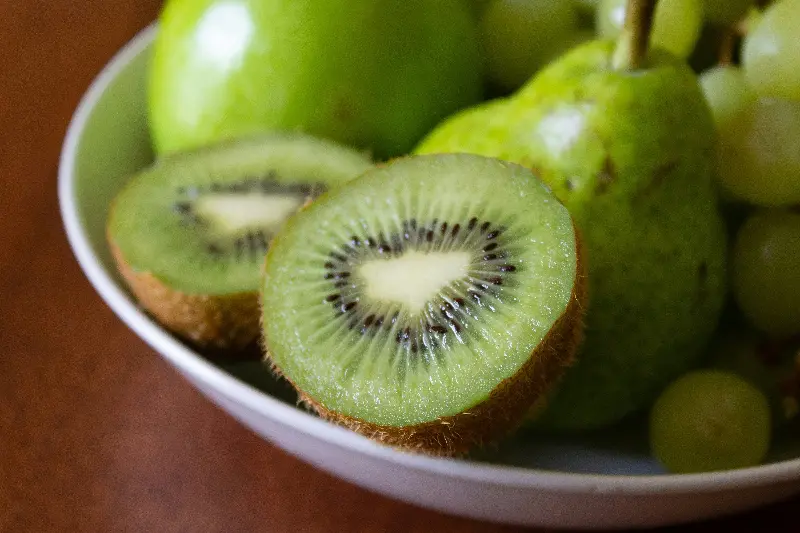
Raisins: Nature’s Tiny Energy Bars
Raisins, which are simply dried grapes, contain around 1 gram of protein per ounce (about 3 grams per 100 grams). Their natural sugars provide a swift energy boost, but they also bring plenty of iron and potassium to support endurance and muscle activity. Toss a handful into your trail mix, oatmeal, or yogurt to power through long days or lengthy workouts.
Passion Fruit: Sweet, Tart, And Satisfying
Passion fruit is rich in dietary fiber and delivers about 5 grams of protein per cup. Its seeds add crunch and extra nutrients, including magnesium and antioxidants. This fruit is low in calories and packs a satisfying flavor punch, helping tame sugar cravings. Scoop out the seeds for a tangy addition to smoothies, yogurt bowls, or simply enjoy it as-is.
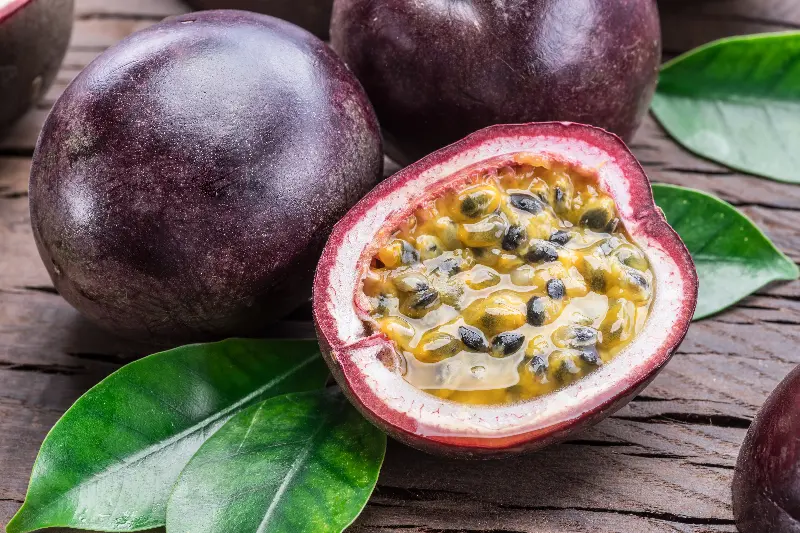
Mulberries: Powerful And Protein-Rich
Often overlooked, mulberries offer roughly 2 grams of protein per cup, more than most berries. They are also a plant-based source of iron, which is vital for energy production and muscle oxygenation. Their sweet yet mild flavor makes them perfect in cereals, baked goods, and smoothies.
Jackfruit: The Versatile Vegan Favorite
Jackfruit stands out with about 2.8 grams of protein per cup when ripe. This tropical fruit is finding its way into kitchens around the world as a meat substitute thanks to its texture and protein content. Besides being filling, jackfruit supplies a healthy dose of vitamin A, C, and magnesium.
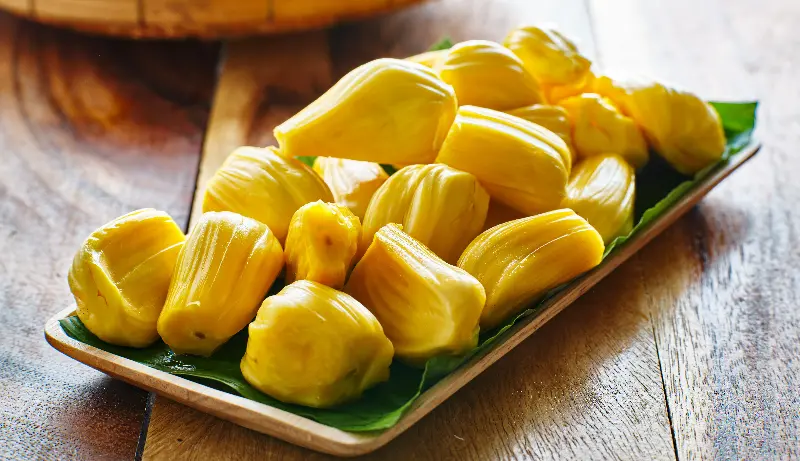
Simple Tips To Boost Protein With Fruit
While these fruits are impressive, combining them with Greek yogurt, cottage cheese, nuts, or seeds will supercharge your snack or meal’s protein content. Think smoothie bowls sprinkled with chia seeds and berries, or avocado toast topped with a sliced hard-boiled egg. Pairing protein-rich fruits with a balanced diet amplifies both muscle-building and slimming benefits.
Including these nine protein-rich fruits in your diet isn’t just a tasty way to satisfy cravings—it’s a nutritional upgrade for weight loss, muscle recovery, and an overall healthier you. The next time you reach for a snack, add a little extra muscle power by choosing from nature’s sweet selection.
